Asteroid news, features and articles
Latest about Asteroids
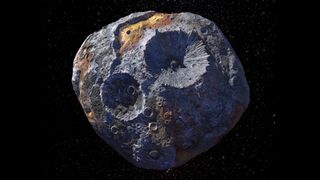
There's an asteroid out there worth $100,000 quadrillion. Why haven't we mined it?
By Isobel Whitcomb published
While asteroids are rich sources of precious and valuable materials, scientists still haven't fully committed to mining them.
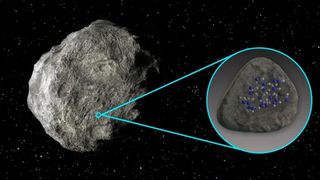
Water detected on the surface of an asteroid for the 1st time ever
By Samantha Mathewson published
Scientists detected water molecules on the surface of two asteroids for the first time ever. The team made the discovery using data from NASA's now-retired SOFIA airborne observatory.
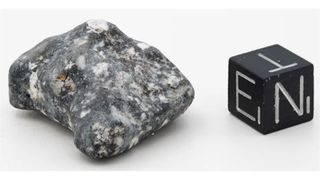
Meteor that exploded over Germany confirmed to be rare 'aubrite' as old as the solar system itself
By Robert Lea published
A meteor that exploded over Germany on Jan. 21 was confirmed to be a rare aubrite, a type of asteroid as old as the solar system.

Asteroid Bennu may be 'a fragment of an ancient ocean world', 1st sample analysis suggests
By Leonard David published
Scientists are working hard to analyze samples of the potentially hazardous asteroid Bennu, with early results suggesting it may even be a chunk of an ancient water world.
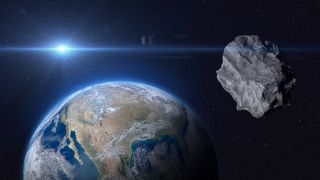
Watch 'city killer' asteroid fly by Earth today on its closest approach for centuries (Feb. 2)
By Harry Baker last updated
A "potentially hazardous" space rock the size of a football stadium is about to reach its closest point to our planet for more than 100 years, and it won't get this close to us again for centuries more.
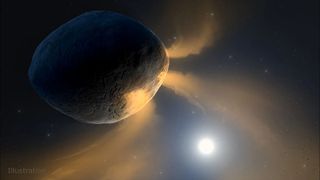
The Geminid meteors may be 10 times older than we thought, simulations of oddball asteroid Phaethon suggest
By Deepa Jain published
The comet-like asteroid Phaethon likely lobbed thousands of rocky fragments toward Earth while rapidly spinning around the sun 18,000 years ago, new research suggests ― and it may fling some more soon.
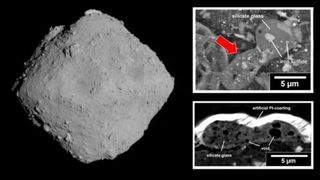
'This might be the seeds of life': Organic matter found on asteroid Ryugu could explain where life on Earth came from
By Robert Lea published
Organic matter found in samples of asteroid Ryugu suggests that ancient comets may be responsible for bringing the 'seeds of life' to Earth.
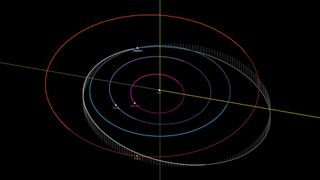
Airplane-size asteroid will have 'very close encounter' with Earth on Saturday — and you can watch it happen
By Sascha Pare last updated
Asteroid 2024 BJ, which astronomers detected earlier this month, will zoom within 220,000 miles of Earth tomorrow, or closer to us than the average distance to the moon.
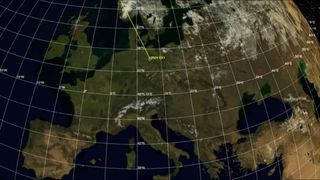
How NASA correctly predicted that a tiny asteroid would burn up over Germany, hours before it happened
By Mike Wall published
Astronomers detected a small asteroid zooming toward Earth's atmosphere on Jan. 21, correctly predicting it would explode over Germany within hours. Here's how they did it.

At last: NASA's complete sample of the 'potentially hazardous' asteroid Bennu is finally freed from its canister
By Ben Turner published
It's finally time to look inside the sample-return capsule from NASA's OSIRIS-REx mission. Scientists were locked out of the container for months due to a technical malfunction.
Get the world’s most fascinating discoveries delivered straight to your inbox.
 Live Science Plus
Live Science Plus










